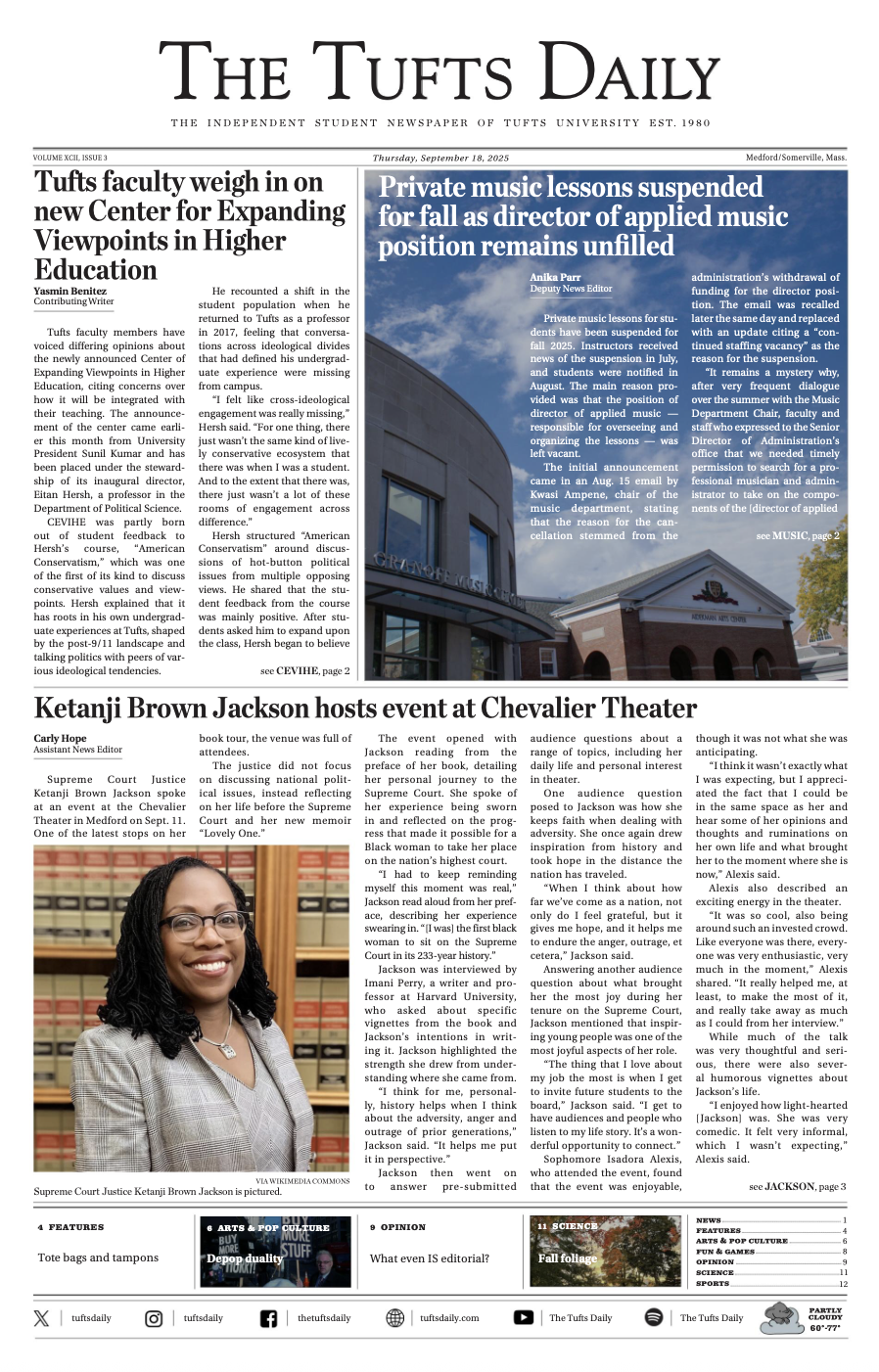We know about the cigars. We know about Castro. We know about the tariffs, the 1950s cars, and the large Latino population. And a group of Tufts students will discover over winter break what else Cuba has to offer besides this tempestuous history.
From Jan. 4 to Jan. 13, Latino Center Director Rub?©n Salinas-Stern, and Professor Claudia Kaiser-Lenoir will travel to the island with 26 undergraduates and graduate students. The trip _ the second annual _ is sponsored by the Latino Center.
This year, interest in the program soared, as over 100 students attended the information session. Forty-two students applied, and the 26 were accepted based on diversity in academic interests as well as race and socioeconomic status, familiarity with Cuba and Latin America, and genuine interest in the program. The program was able to grant scholarships to students with financial need thanks funds given by the Provost's Office.
The goal of the trip is to educate students about Cuba. Last year, the 17 students on the trip spent the ten days in Havana learning firsthand about various aspects of Cuban society. They gained much of their knowledge by simply speaking with citizens spanning the range of socioeconomic status in the country, according to the trip organizers.
The group ventured outside the capital city a number of times to visit museums and artists' homes, and to meet with experts who were implementing education and literacy workshops outside the city.
Students on this year's trip will be given the opportunity to interact more closely with residents of Cuba, as they will be working directly with a youth organization performing community service. Unlike last year, they will be able to visit schools, hospitals, a day care center and a family clinic. The ability to gain direct exposure to the country's facilities will allow students the opportunity to gain a deeper understanding of Cuban life and society, according to Kaiser-Lenoir.
"I want students to be challenged, to think about the world in broader terms, and to learn new ways of participating in charting a more humane course for society," she said. "We in this country are in a sense blockaded from becoming more aware of the real nature of that very exciting social experiment that Cuba is."
Exposure to a society that is so different from the US provides a unique experience, Kaiser-Lenoir said, in which "both sides profit greatly because we share the same world and we confront same problems."
Travel between the US and Cuba has been restricted since the US imposed the trade embargo forty years ago. To gain permission to organize the trip, the group had to apply for and obtain a license from the US Treasury Department. The license, which will expire in August, permits Tufts students and faculty two years to visit the country for educational purposes.
"I think it's really important to study abroad in order to understand the effects we are having on our neighbors and on other cultures," said sophomore Adina Allen, one of the students accepted into the program. "I chose this program because we have a community to go with and we can discuss our experience."
Salinas-Stern who was born in Cuba and founded the program, is worried that the program may not exist after this year if Tufts is unable to renew the license that allows students to go. This is unfortunate, he said, given the educational value of the trip.
"Cuba offers a different system and a different way of life, and I think we can learn from that," Salinas-Stern said. "We in this country have a very black and white picture of Cuba, and I think it's important for students to gain a different perspective and see that there is more than one way to run a country. I'm not saying it's a wonderful system, but I think it's important to look at."
Students will be responsible for sharing their knowledge and experience with the Tufts community when they return. It is up to students to determine the way in which they will present the information they have acquired.
"My only direct involvement may be a public presentation to share an informal discussion with the Tufts community," Kaiser-Lenoir said. "The rest of what is being planned has to do with ideas generated by the students."
More from The Tufts Daily





